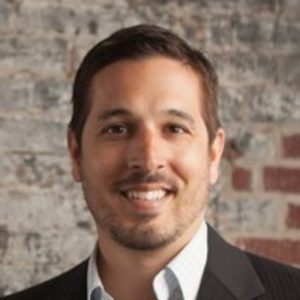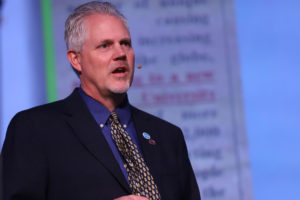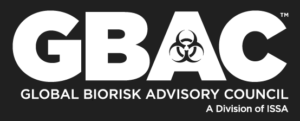Two Weeks to Two Hours: Rapid, In-Field Detection of Legionella
This FREE Master Class is brought to you by GBAC-TIPS
Despite great strides and investment in modern water treatment practices designed to reduce waterborne pathogen outbreaks, Legionnaire’s Disease has become the leading cause of waterborne illness in the United States and cases have been steadily climbing for several decades. This is primarily due to the favorable conditions present in the built environment for amplification of Legionella bacteria, a diverse group of species that can cause disease when inhaled in contaminated aerosols. Understanding the current water management regulatory framework and the gaps that exist are key to understanding where we are today and how we can chart a path to future improvements. We invite you to join this masterclass to learn more about Legionella bacteria and why proactive monitoring is a critical step in identifying and mitigating against Legionella risk.
Learning Objectives
- What is Legionella and why is it considered a public health concern ?
- How the COVID-19 pandemic has impacted cases of Legionnaires’ disease
- The pros and cons of traditional and new testing methods for Legionella
- How to reduce the risk with a proactive monitoring plan
Educational Credits
- 1 CE Nurses credit was provided for this webinar to those that attended the live session on November 4, 2021
Full video of our November 4, 2021 Webinar:
SPEAKERS
Jeremy Duguay, MSc
 Jeremy Duguay is a molecular biologist with over 15 years of biotechnology experience in the public, private and academic sectors. With a wide-ranging background in technical sales, customer support and research and development, he takes pride in understanding customer needs and helping customers solve complex problems. An educator at heart, Jeremy is driven to help clients navigate and succeed in the constantly evolving world of microbiology. As an avid sports and outdoor enthusiast, he can be found exploring the abundance of nature in Fredericton with his wife, two daughters and dog Charlie.
Jeremy Duguay is a molecular biologist with over 15 years of biotechnology experience in the public, private and academic sectors. With a wide-ranging background in technical sales, customer support and research and development, he takes pride in understanding customer needs and helping customers solve complex problems. An educator at heart, Jeremy is driven to help clients navigate and succeed in the constantly evolving world of microbiology. As an avid sports and outdoor enthusiast, he can be found exploring the abundance of nature in Fredericton with his wife, two daughters and dog Charlie.
Dr. Rodney E. Rohde PhD
 Dr. Rodney E. Rohde is an Advisory Board member of TIPS and Professor, Research Dean and Chair of the Clinical Laboratory Science Program (CLS) in the College of Health Professions of Texas State University, where he spends a great deal of time mentoring and coaching students in this sometimes mysterious and vague path. He has been recognized with teaching excellence at both Texas State and Austin Community College. Dr. Rohde’s background is in public health and clinical microbiology, and his PhD dissertation at Texas State was aligned with his clinical background: MRSA knowledge, learning and adaptation. His research focuses on adult education and public health microbiology with respect to rabies virology, oral rabies wildlife vaccination, antibiotic resistant bacteria, and molecular diagnostics/biotechnology. He has published a book on MRSA stories, over 50 research articles, book chapters and abstracts and presented at more than 100 international, national and state conferences.
Dr. Rodney E. Rohde is an Advisory Board member of TIPS and Professor, Research Dean and Chair of the Clinical Laboratory Science Program (CLS) in the College of Health Professions of Texas State University, where he spends a great deal of time mentoring and coaching students in this sometimes mysterious and vague path. He has been recognized with teaching excellence at both Texas State and Austin Community College. Dr. Rohde’s background is in public health and clinical microbiology, and his PhD dissertation at Texas State was aligned with his clinical background: MRSA knowledge, learning and adaptation. His research focuses on adult education and public health microbiology with respect to rabies virology, oral rabies wildlife vaccination, antibiotic resistant bacteria, and molecular diagnostics/biotechnology. He has published a book on MRSA stories, over 50 research articles, book chapters and abstracts and presented at more than 100 international, national and state conferences.
In 2015, Dr. Rohde received the Cardinal Health #urEssential Award as Champion of the CLS Profession, named a Top 20 Professor of CLS and received the Texas State Mariel M. Muir Mentoring Award. Likewise, he was awarded the 2015 and the 2012 Distinguished Author Award and the 2014 and 2007 ASCLS Scientific Research Award for his work with rabies and MRSA, respectively. Learn more about his work here. Dr. Rohde is the past President of the Texas Association for Clinical Laboratory Science (TACLS) and has been involved in licensure efforts in Texas since 2007. In 2017, Dr. Rohde became a Fellow of the Association of Clinical Scientists, and was honoured as a TEDx Speaker and Global Fellow of the Global Citizenship Alliance.
SPONSORED BY
| Share |


